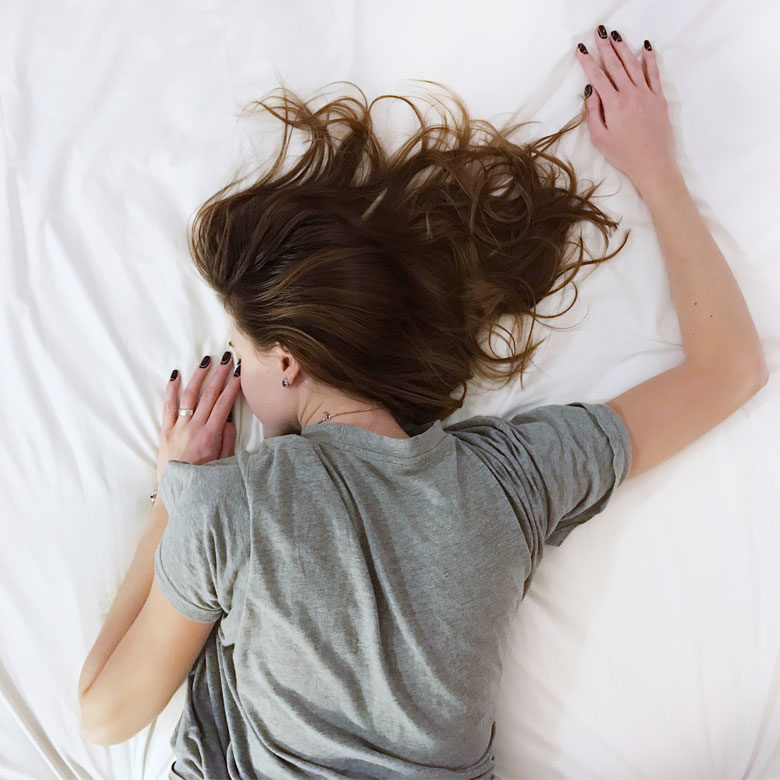Everything is super important. Until you are sick. Then you realize there was only ever one thing that was important. Your health. But nonetheless, we borrow from the bank of our health, taking loans on stress and sleepless nights to pay for something that doesn’t really matter.” – unknown
I love this quote! As I look back on my journey from cancer to health, and now during this pandemic, this quote resonates with me more than ever. I hope it resonates with you too and that reading it creates the space for us to welcome a little more awareness into our lives. I will be the first to admit that I was taking loans on stress and sleepless nights before my wake-up call, and sometimes still fall into that cycle. Any other recovering perfectionists out there?! I want this to be an opportunity for you to take a deep and honest look at your life. I want you to avoid a dramatic wake-up call like my own. Today specifically I want to talk about a different epidemic and that is sleep or the lack thereof. We have all heard how important sleep is, yet it is one of the first things to go when we start paying for things that do not matter as much as our health. Does that email really need to be sent right before bed? Can you stop scrolling and instead pick up a book? Can the TV be turned off and replaced with a conversation or game? What really matters?
What makes sleep so important?
Sleep heals! Sleep is one of the key pillars of a healthy life filled with joy and abundant energy. During sleep the body gets to work, removing toxins, fighting illnesses, balancing hormones, completing digestion, repairing tissues and more. Numerous studies have shown that sleep impacts the entire body including, the brain, heart, immune system, hormones, mood control, metabolism and the GI system.
How much sleep is enough?
For adults that falls between 7-9 hours. For children, it is more depending on age. Sleep is also bio-individual, meaning my optimal amount of sleep to feel fully energized is 9 hours. Someone else could get 7 hours of sleep and someone else may need 10 hours of sleep to function optimally. None the less,
My top 7 ways to start to optimize your sleep
- Soak up natural sunlight during the day. Aim to get outside for at least 30 minutes a day. Bonus points if you catch the sunrise and sunset as this can help to reset the body’s natural circadian rhythm.
- Be in bed at the same time every night (preferably before 10 pm). The deepest and most regenerative sleep occurs between 10 p.m. – 2 a.m.
- Get the temperature right. The suggested bedroom temperature should be between 60 – 67 degrees Fahrenheit for optimal sleep.
- Unplug. Step away from any blue light for at least 2 hours before bed. This includes watching TV, social media, and answering emails. Not only do these activities involve blue light, they are also too stimulating before bed. Avoiding these activities allows your body to produce the melatonin it needs to induce sleep.
- Develop a relaxation practice. Now that you are not on your phone, computer or watching TV, before bed, this allows for time to fine-tune a relaxation practice. This can include anything from light stretching, slow yoga, guided meditation, reading, or deep breathing, to calming music.
- Stop eating two to three hours before bed. The digestive system needs ample time to rest and clear out so that it can reset for the next day. Heartburn can also be triggered by eating and then lying down.
- Coffee before noon. Studies have confirmed the widely held belief that coffee consumption interferes with sleep quantity and quality. In addition, they found that the consumption of caffeine decreases melatonin. This really goes for any caffeine as it takes about 6 – 8 hours for 50% of the caffeine consumed to be eliminated.
Personally, I have found these sleep habits to be game-changing and I wish the same for you! I highly encourage you to examine where you could start contributing to your health bank, instead of borrowing, and to simply implement these restoring sleep tips. If you still have trouble sleeping, please consider investigating further by getting checked for things that can interfere with sleep, including food sensitivities, thyroid problems, heavy metal toxicity, vitamin or mineral deficiencies, and cortisol issues.
– Becky
PS. Sign up for our email list so you never miss any updates or news!

